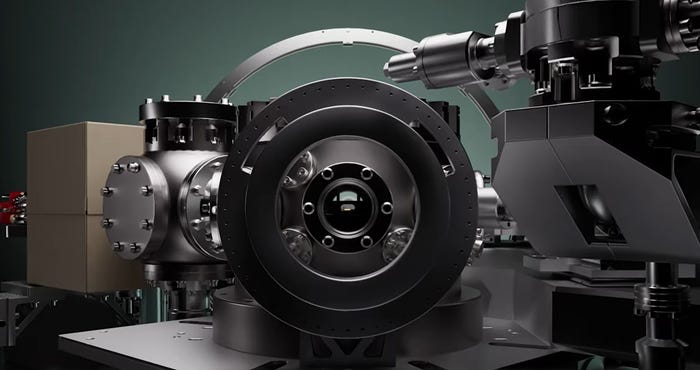
Connects decision-makers and solutions creators to what's next in quantum computing
Banking Use Cases Prove Quantum ConceptsBanking Use Cases Prove Quantum Concepts
Pasqal, Multiverse and Crédit Agricole demonstrated improved results over classical methods in valuing derivatives and assessing credit risks

Crédit Agricole Corporate and Investment Bank (CIB), quantum hardware company Pasqal and quantum software company Multiverse Computing have demonstrated that quantum algorithms can offer benefits over classical methods for two banking use cases.
Derivative Valuation
The first experiment sought to determine whether quantum computing could make the valuation of a type of financial product derivatives more efficient. Previous experiments used neural networks, but they needed a lot of computer memory and took a long time to process on classical computers.
Multiverse used algorithmic techniques inspired by quantum computing on classical computers to optimize the speed and memory required for neural network training. This led to faster valuations and more accurate risk assessments but required a smaller memory footprint.
Assessing Credit Rating
The second experiment with Pasqal and Multiverse was to prove if a quantum computer could solve a real-world banking problem and, if so, whether adding more qubits would improve performance.
The bank chose a real use case to directly compare results, predicting a counterparty credit rating downgrade over a six to 15-month period. This already works well with classical computer technology and heuristics but does not work for all problems and cannot guarantee achieving the best result.
The companies used a 50-qubit quantum processor that produced results as accurate as the production system. They also predicted that the performance could be bettered with a 300-qubit processor, which should be available industrially in 2024.
Quantum Potential
Crédit Agricole CIB initiated the experiments on financial products and the assessment of credit risks in June 2021 and deemed them both successful after a year and a half.
“These two proofs of concept demonstrated the potential and reality of quantum computing for finance, despite these technologies still being in their infancy,” said Crédit Agricole CIB project sponsor Ali El Hamidi.
“We took advantage of this initiative to start developing the internal skills to prepare for a technological breakthrough which, if it happens, will have a direct and decisive impact on competitiveness in our sector."
“This is the most instructive experiment carried out in the industry so far, offering concrete comparisons for the first time, launching a new era for quantum computing,” said Pasqal president Georges-Olivier Reymond. “One of the results is that the tipping point is not that far away, probably less than two years, and that it is, therefore, urgent for users to quickly adopt these new methods, as Crédit Agricole CIB has done.”
About the Author
You May Also Like






